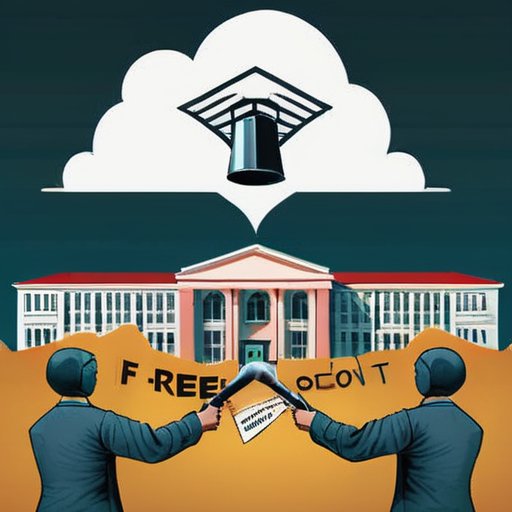In a move that has sent shockwaves through academic institutions, particularly Columbia University, the Trump administration’s handling of pro-Palestinian activism has raised significant concerns regarding students’ rights to free speech. Mahmoud Khalil, a Palestinian refugee and Columbia graduate student, had his green card revoked amidst allegations of his involvement in protests supporting Palestine. This led to his arrest by U.S. Immigration and Customs Enforcement (ICE), which many believe is part of a broader strategy to intimidate and silence dissent at colleges.
Elora Mukherjee, director of the Immigrants’ Rights Clinic at Columbia Law School, reported a surge in inquiries from students uncertain about their ability to participate in pro-democracy activities without facing repercussions from the government. Students are now reconsidering their decisions about traveling abroad, sharing their opinions on social media, and attending demonstrations, once activities that were taken for granted. Mukherjee emphasized the need for students to understand their position and the potential risks involved in their activities.
Critics, including Zaid, a University of California, Berkeley student, have warned that Khalil’s case could set a dangerous precedent for international students who fear deportation simply for expressing their political views. The ICE actions are perceived as attempts to curb First Amendment rights, emboldening an environment of fear among students across the nation, particularly impacting those on temporary or uncertain immigration statuses.
President Trump has publicly condemned Khalil, labeling him a “radical foreign pro-Hamas” activist. Trump hinted that Khalil’s detention was just the beginning, suggesting that many other students might follow suit. His comments have fueled anxieties surrounding academic discourse in the U.S.
Legal experts and advocates argue that this targeting of students based on their political beliefs represents a significant breach of civil liberties. Donna Lieberman, from the New York Civil Liberties Union, has reiterated that Khalil’s arrest appears to be an attempt to suppress voices opposing the administration’s policies rather than based on any concrete legal violations.
In response to the escalating tensions, Columbia University has received criticism for its handling of the situation, facing potential cuts to federal funding and pressure to restrict protests on campus. This environment has left students feeling vulnerable, leading many to avoid engaging in activism altogether. Harsh crackdowns on protests last spring following heightened tensions in the Gaza conflict have amplified fears among campus communities.
Moreover, various universities, including Harvard, witnessed rallies in support of Khalil, emphasizing widespread dissatisfaction with the administration’s actions. Students across the country express that while fear might paralyze some, it has also ignited fervent activism as many unify against what they perceive as governmental overreach and suppression. The movement, once primarily focused on Palestine, has now morphed into a broader fight for the right to protest and free speech, prompting students from various backgrounds to stand in solidarity.
As the situation unfolds, the implications of these actions are profound, raising issues that reach beyond the immediate circumstances of Khalil’s case. The chilling effect on free speech within higher education could resonate for generations, with institutions grappling with maintaining their fundamental mission of fostering open discourse while navigating the political landscape shaped by the Trump administration’s policies.
